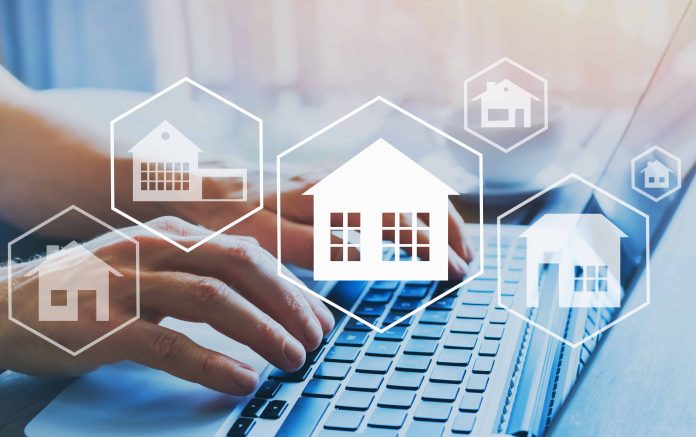Exploring the HUD Home Store: A Wealth of Affordable Housing Options
In the landscape of increasingly expensive housing, the United States Department of Housing and Urban Development (HUD) has stepped in to provide a vital service: the HUD Home Store. This government-operated website functions as a valuable resource, offering a diverse array of housing options aimed at alleviating the challenges of finding affordable homes. Despite its significance, many remain unaware of the HUD Home Store’s existence and the extent of assistance it can provide.
Diverse Property Offerings on the HUD Home Store
While the HUD Home Store is known for its specialization in HUD-approved foreclosed homes, it boasts a broader selection of housing options as well. Among these offerings are:
-
Homes for $1: An intriguing category that holds potential for local governments to provide low-cost housing solutions to their communities.
-
Good Neighbor Next Door Homes (GNND): A unique program designed to benefit certain professionals by offering a 50% discount on qualifying home listings.
Essentially acting as a comprehensive listing platform, the HUD Home Store is a repository for HUD REO single-family properties. The term “REO” stands for “real estate owned,” and the platform functions as both a search engine for the public seeking HUD properties and a vital tool for state and local governments and brokers. For approved real estate brokers and registered organizations, the site serves as a platform for bidding on properties on behalf of their clients. Beyond its role as a listing search engine, the website offers invaluable information, guidance, and advice for consumers navigating the complexities of the home-buying process.
Properties listed on the platform undergo thorough evaluation to determine eligibility for sale to local governments or approved non-profit organizations. These properties are typically situated in designated revitalization areas. For properties not earmarked for special programs, they are marketed with priority, primarily to individuals intending to make the property their primary residence. Unsold properties eventually become available to the general public after this initial focused period.
HUD Foreclosed Properties: The Main Attraction
The crux of the HUD Home Store lies in its offering of HUD foreclosed properties. These homes, consisting of one to four residential units, have become available due to foreclosure. Crucially, the foreclosure must involve a specific type of mortgage: one that is FHA-insured. Such mortgages protect lenders from potential losses and fall under the jurisdiction of the Federal Housing Administration (FHA), a division of HUD. Consequently, when an FHA-insured mortgage undergoes foreclosure, HUD assumes ownership of the property and seeks to recoup any incurred losses through its sale.
Navigating the Selling Process
HUD-registered real estate brokers play a pivotal role in the selling process of these properties. With their in-depth understanding of local residential real estate markets, brokers submit contracts for homes listed on the platform. HUD, constrained by staffing limitations, relies on brokers to handle tasks like showing properties to potential buyers and managing other aspects of the home purchase. To become eligible to sell these properties, brokers must complete specific paperwork and submit it to their local HUD Homeownership Center. Following verification, brokers are assigned a name and an address identification number (NAID), granting them permission to advertise, show, and submit offers for HUD homes.
Property Conditions: “As-Is” Sales
Properties available through the HUD Home Store are sold in their current state, “as-is.” This signifies that HUD is absolved of any responsibility for repair work or property damage. Consequently, buyers assume liability for necessary modifications or repairs upon acquisition.
The Good Neighbor Next Door (GNND) Program
For those in specific professions, the HUD-administered GNND program offers an additional avenue for housing assistance. Eligible individuals include:
- Emergency Medical Technicians (EMTs)
- Firefighters
- Preschool through 12th-grade teachers
- Law Enforcement Officers
This program extends a 50% discount on the listing price of qualifying homes. To reap this benefit, buyers must commit to residing in the purchased property as their primary residence for a minimum of 36 months. Eligible properties are situated in designated revitalization zones.
Accessing the GNND program involves browsing eligible properties on the HUD Home Store website. The available properties are subject to weekly changes, as buyers are granted a seven-day window to finalize purchases. In cases of multiple interested parties, a lottery determines the winning buyer. Fulfillment of specific requirements, tailored to the qualifying profession, is mandatory.
Significantly, recipients of GNND properties must sign a second mortgage and a note for the discounted amount. However, fulfilling residency requirements exempts buyers from any interest or payments associated with this second mortgage.
Homes for $1: A Community Investment
The “Dollar Home” program is another distinct facet of the HUD Home Store. This initiative allows local governments to purchase eligible homes for a nominal $1 fee. These homes, arising from foreclosure, are made available when their market value falls below $25,000, and they have been on the market for at least six months. Local governments leverage these properties to provide affordable housing solutions, often in collaboration with nonprofit local homeownership organizations or existing community-based programs.
In Conclusion
The HUD Home Store stands as an invaluable resource for those exploring housing options. Facilitated by the U.S. Department of Housing and Urban Development, this platform encompasses an impressive array of properties, including those falling under the GNND program, standard HUD foreclosures, and the Dollar Home program. Aspiring homebuyers are advised to peruse this platform, as they may uncover ideal housing solutions at more affordable prices than anticipated.

